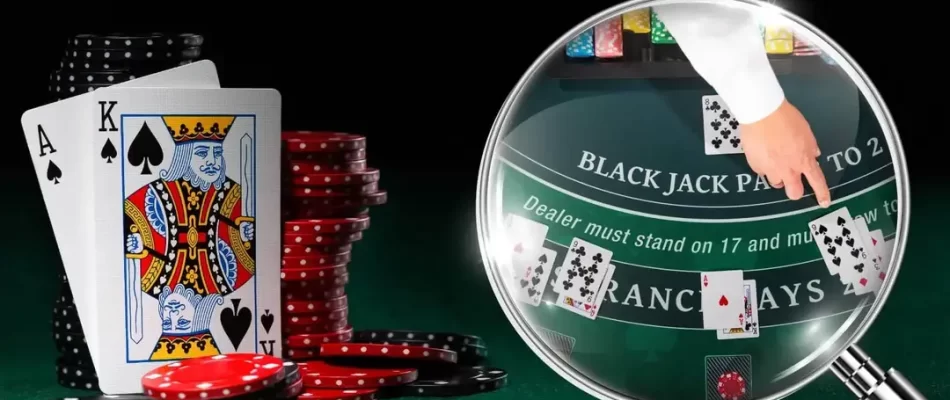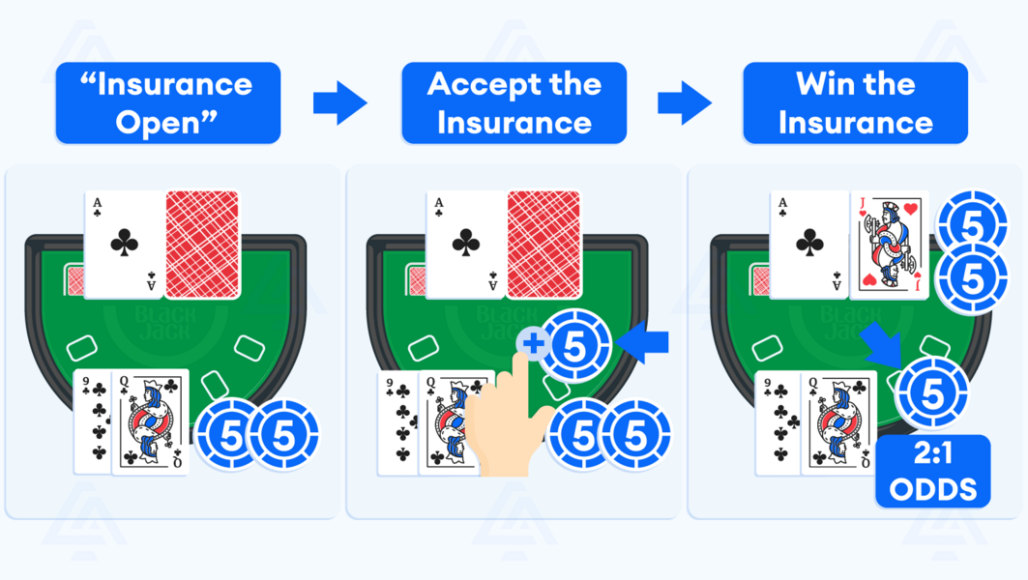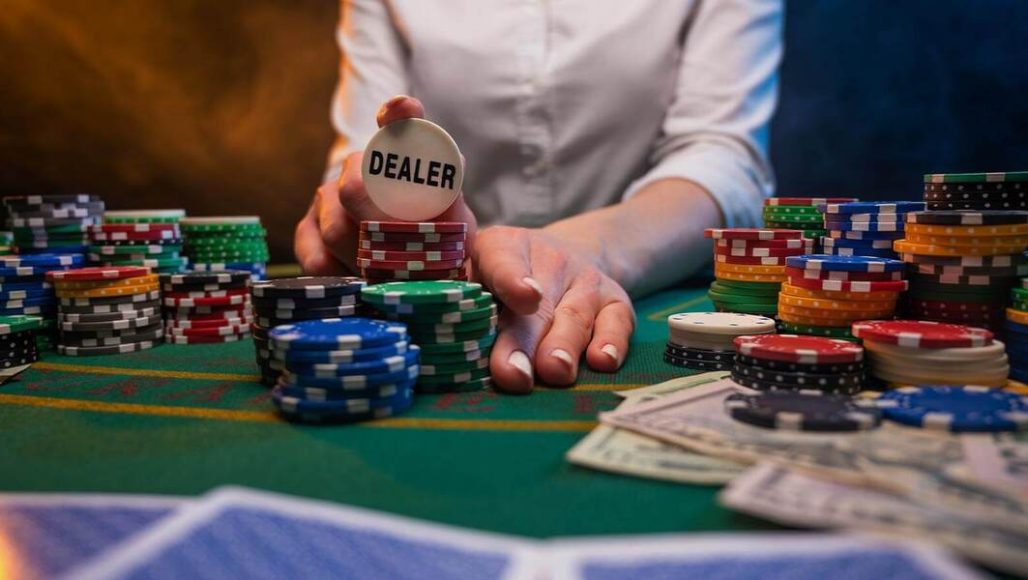Exploring the Intricacies of Blackjack Insurance

Blackjack, a timeless card game enjoyed by millions worldwide, is not only a test of skill and luck but also of strategy and decision-making. One intriguing aspect of blackjack is the insurance bet, a side wager that often sparks debate among players and experts alike. In this comprehensive review, we delve into the concept of blackjack insurance, examining its mechanics, strategic implications, and the circumstances under which it might be advantageous.
Much like in poker, where reading your opponent and making calculated risks are essential, understanding when to take insurance in blackjack requires a keen sense of the game’s dynamics and probabilities.
What is Insurance in Blackjack?
Insurance in blackjack is a side bet offered to players when the dealer’s upcard is an Ace. This option acts as a form of protection against the dealer hitting a natural blackjack, which consists of an Ace and a ten-value card (10, Jack, Queen, or King). The insurance bet allows players to hedge their primary wager against this possibility.
Typically, the insurance bet can be up to half of the original bet. If the dealer does indeed have blackjack, the insurance bet pays out at 2:1 odds. Consequently, a winning insurance bet compensates for the loss of the original bet, resulting in a break-even situation for the player.
Blackjack Insurance Bet: Mechanics and Payouts

To understand the blackjack insurance bet fully, it is essential to grasp its mechanics and the associated payouts. When the dealer’s upcard is an Ace, the dealer will offer insurance to the players before revealing the hole card. At this point, players can place an additional bet, typically up to half of their initial wager, on the insurance line.
Should the dealer reveal a ten-value card as the hole card, completing a blackjack, the insurance bet wins and is paid out at 2:1 odds. For example, if a player places a $10 insurance bet, they will receive $20 in return, effectively nullifying the loss of the original bet. Conversely, if the dealer does not have blackjack, the insurance bet is forfeited, and the round continues based on the initial wagers.
When Should You Take Insurance in Blackjack?
Deciding when to take insurance in blackjack is a nuanced aspect of the game, and opinions vary widely among seasoned players and experts. However, certain scenarios and strategic considerations can guide this decision.
Understanding the Odds. To evaluate the wisdom of taking insurance, one must consider the odds. In a standard blackjack game with a single deck, there are 16 ten-value cards out of 52. When the dealer shows an Ace, the probability of the hole card being a ten-value card is approximately 30.8%. This percentage suggests that more often than not, the dealer will not have blackjack.
Card Counting and Insurance. Card counting, a strategy used by some players to gain an advantage, can significantly influence the decision to take insurance. In scenarios where the count indicates a high concentration of ten-value cards remaining in the deck, the probability of the dealer having blackjack increases. Advanced players using card counting techniques may find insurance more appealing in such circumstances.
General Advice. For the average player not employing card counting, the general consensus is to avoid the insurance bet. Statistically, the house edge on the insurance bet is substantial, making it a less favorable option in the long run. Relying solely on probability, insurance can be seen as a risky proposition that erodes a player’s bankroll over time.
The Psychological Aspect of Blackjack Insurance
Beyond the mathematical and strategic considerations, the psychological element plays a role in the decision to take insurance. The insurance bet can offer peace of mind, as it mitigates the fear of losing the entire wager to a dealer blackjack. This sense of security, albeit potentially costly, is a factor that influences many players.
Additionally, the allure of breaking even when the dealer hits blackjack is compelling. For some, the immediate reassurance outweighs the statistical disadvantage, highlighting the subjective nature of gambling decisions.
The House Edge and Blackjack Insurance

Understanding the house edge is crucial when evaluating the merits of the blackjack insurance bet. The house edge on insurance can vary, but it generally hovers around 7% for a standard single-deck game. This figure indicates that for every dollar wagered on insurance, the player can expect to lose an average of seven cents over time.
This relatively high house edge is a primary reason why many experts advise against taking insurance. The mathematical disadvantage built into the insurance bet underscores the importance of weighing short-term benefits against long-term costs.
Conclusion
In the intricate world of blackjack, the insurance bet stands out as a topic of considerable debate. While it offers a form of protection against the dealer’s natural blackjack, the statistical and strategic implications often render it an unfavorable choice for most players. Understanding what is insurance in blackjack, along with its mechanics and associated odds, is crucial for making informed decisions at the table.
For the average player, the recommendation is clear: avoid the blackjack insurance bet unless equipped with advanced card counting skills that can tip the odds in your favor. By adhering to this advice, players can preserve their bankroll and enhance their overall blackjack experience.
FAQ
Insurance in blackjack is a side bet that players can place when the dealer’s upcard is an Ace. It serves as a form of protection against the dealer having a natural blackjack (an Ace and a ten-value card).
When the dealer shows an Ace, players can place an insurance bet up to half of their original wager. If the dealer’s hole card is a ten-value card, completing a blackjack, the insurance bet pays out at 2:1 odds. If not, the insurance bet is lost.
Generally, most experts advise against taking insurance unless you are using advanced card counting techniques that indicate a high concentration of ten-value cards remaining in the deck. For the average player, the insurance bet is statistically unfavorable.
In a standard single-deck game, the probability of the dealer having blackjack when showing an Ace is about 30.8%. This means the odds are not in the player’s favor, as the dealer is more likely not to have a blackjack.
The house edge on the insurance bet is typically around 7%. This high edge makes it a less attractive option for most players, as it leads to a significant long-term disadvantage.
Yes, card counting can influence the decision. If a player accurately counts cards and determines that there are a high number of ten-value cards left in the deck, taking insurance might become a more viable option.
No, taking insurance is generally not recommended for beginners. The insurance bet tends to favor the house, and without advanced strategies like card counting, it is usually a losing proposition over time.
Incorporating the insurance bet into your blackjack strategy can be detrimental unless used in specific, calculated situations. Relying on it frequently can erode your bankroll due to the unfavorable odds and house edge.
Yes, the number of decks in play can affect the odds and house edge of the insurance bet. In general, the more decks in use, the higher the house edge on insurance, making it an even less favorable option.